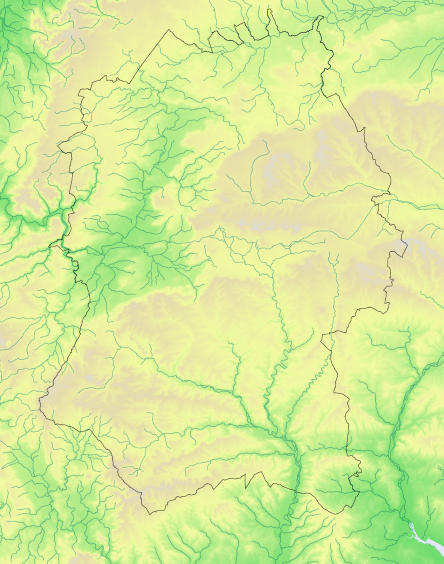Tawny Owl Strix aluco
Breeding distribution change
Common and widespread resident, far more so than surveys suggest
Atlas species lists
- Breeding distribution 1995–2000
- Summer abundance 1995–2000
- Winter distribution 1995–2000
- Winter abundance 1995–2000
- Breeding distribution 2007–2012
- Summer abundance 2007–2012
- Winter distribution 2007–2012
- Winter abundance 2007–2012
- Breeding distribution change
- Summer abundance change
- Winter distribution change
- Winter abundance change
More Tawny Owl maps
- Breeding distribution 1995–2000
- Summer abundance 1995–2000
- Winter distribution 1995–2000
- Winter abundance 1995–2000
- Breeding distribution 2007–2012
- Summer abundance 2007–2012
- Winter distribution 2007–2012
- Winter abundance 2007–2012
- Breeding distribution change
- Summer abundance change
- Winter distribution change
- Winter abundance change
Map explanation
This map shows where changes occurred in the breeding season distribution of the species in Wiltshire between 1995-2000 and 2007-2012, as revealed by the fieldwork for Birds of Wiltshire (Wiltshire Ornithological Society 2007) and the shared fieldwork for Bird Atlas 2007-2011 (BTO 2013) and for Wiltshire Tetrad Atlas 2007-2012.
Gains and improvements
Status
Nos tetrads

Absent to present
72
8%

Present to breeding
30
3%

Absent to breeding
70
8%
No change
Status
Nos tetrads

Present in both
31
3%

Breeding in both
62
7%
Losses and declines
Status
Nos tetrads

Present to absent
110
12%

Breeding to present
28
3%

Breeding to absent
77
8%
Tawny Owls are resident in north-west Africa, all of Europe - except Iceland, Ireland, northern and central Fenno-Scandia and northern Russia – western Siberia, parts of the Middle East and along the Himalayas east to China, Korea and Taiwan. They occur widely throughout Great Britain except in the northern and some of the western islands of Scotland.
Being nocturnal they are poorly covered by most surveys but such evidence as is available suggests a generally stable British population with some moderate decline in Scotland and south-west England since 1970. In Wiltshire they remain widespread with only a slight decrease between Birds of Wiltshire (where they were recorded in 338 tetrads, with breeding in 167) and WTA2 (298 tetrads, breeding in 162).
References
The following references are used throughout these species accounts, in the abbreviated form given in quotation marks:
“1968-72 Breeding Atlas” – Sharrack, J.T.R. 1976: The Atlas of Breeding Birds in Britain and Ireland. T. & A. Poyser
“1981-84 Winter Atlas” – Lack, P.C. 1986: The Atlas of Wintering Birds in Britain and Ireland. T. & A. Poyser
“1988-91 Breeding Atlas” – Gibbons, D.W., Reid, J.B. & Chapman, R.A. 1993: The New Atlas of Breeding Birds in Britain and Ireland 1988-91. T. & A. Poyser
“Birds of Wiltshire” – Ferguson-Lees, I.J. et al. 2007 : Birds of Wiltshire, published by the tetrad atlas group of the Wiltshire Ornithological Society after mapping fieldwork 1995-2000. Wiltshire Ornithological Society.
“Bird Atlas 2007-2011” – Balmer, D.E., Gillings, S., Caffrey, B.J., Swann, R.L., Downie, I.S. and Fuller, R.J. 2013: Bird Atlas 2007-2011: the Breeding and Wintering Birds of Britain and Ireland
“WTA2” – ("Wiltshire Tetrad Atlas 2 ") the present electronic publication, bringing together the Wiltshire data from “Birds of Wiltshire” and “Bird Atlas 2007-11”, together with data from further fieldwork carried out in 2011 and 2012.
"Hobby" - the annual bird report of the Wiltshire Ornithological Society.

